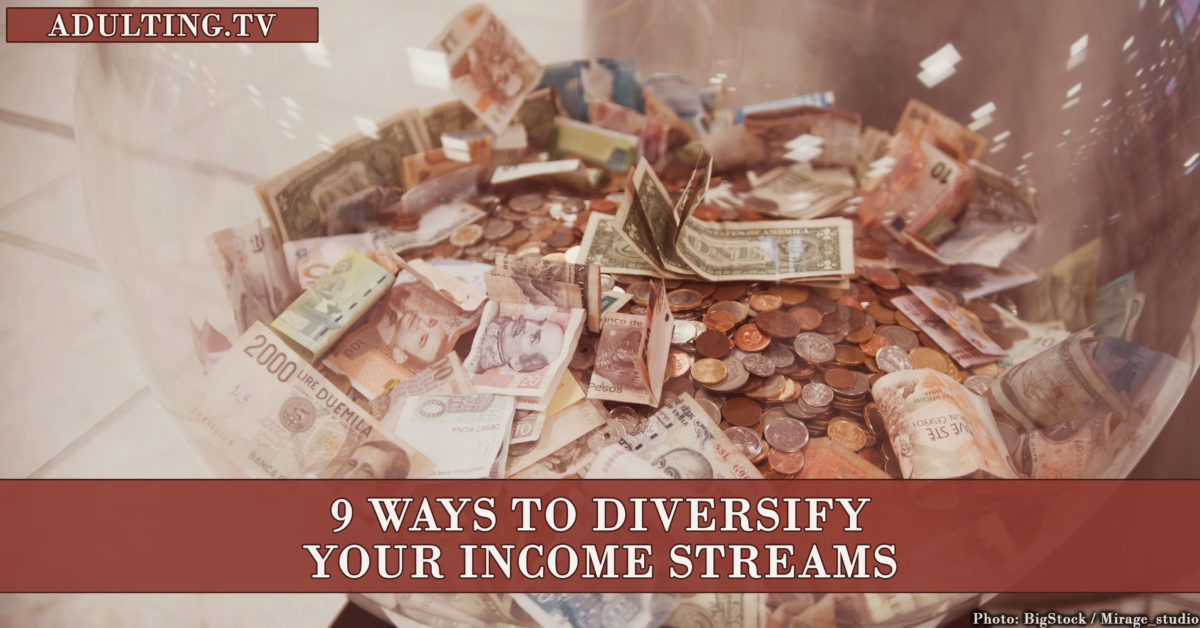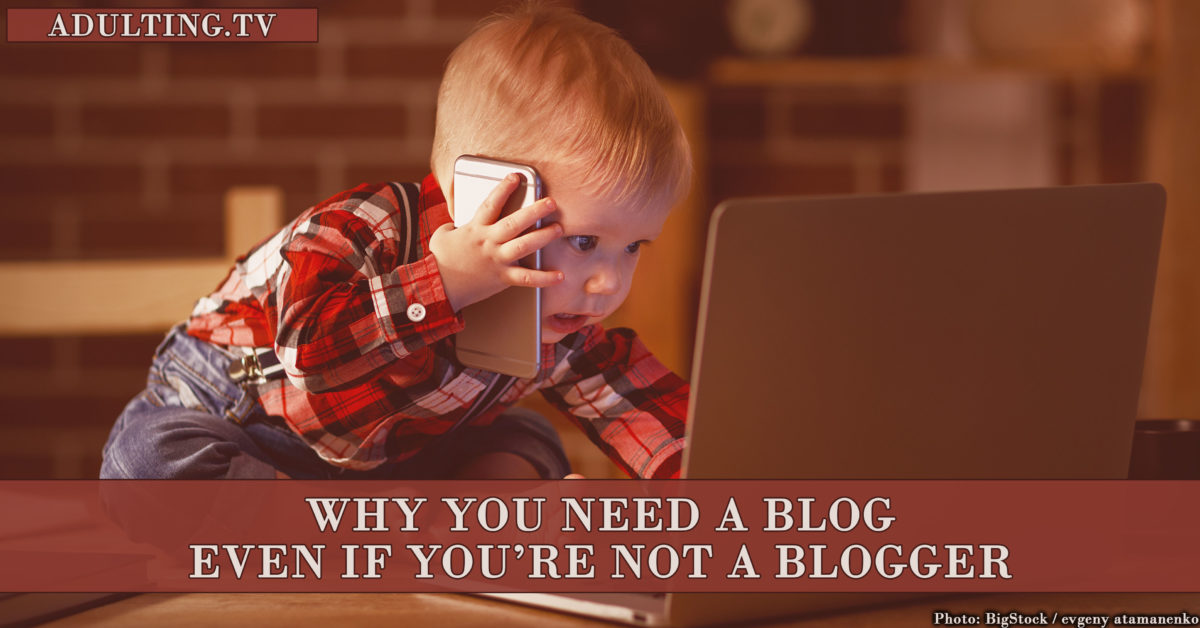So, you decided to become an entrepreneur because you had a vision and a passion.
You didn’t want to answer to anyone and wanted to be in control of your whole life. Tony Robbins tells you to follow your dreams. Gary Vee says you can do it.
But this entrepreneur thing is harder than it looks.
You keep hearing and seeing everyone else’s “overnight success,” and you’re toiling away year after year just waiting for your break.
Social media has become your worst enemy. According to Instagram, everyone else is killing it, and you’re dying a slow business owner’s death — you feel like the next entrepreneurial failure.
Before you step further into that coffin, it’s time for a reality check.
Remember why you started.
“Always remember, you have within you the patience, and the passion to reach for the stars to change the world.” – Harriet Tubman
When we feel like an entrepreneurial failure, it often means that we forgot what our original dream was. The entrepreneur must evolve to succeed, but the original inspiration should remain.
Go back to the original source of your inspiration. Remember what it felt like before you lost that original passion.
Everyone is born with a purpose and it’s in the inspiration, those moments that put excitement in our bellies, where we find our purpose. When you remember that original feeling, what was it that excited you?
You probably felt that you had a product, service, or knowledge that would help people. You probably envisioned positively affecting your community or the world. When you’re feeling down and out about your progress, remember why you started in the first place.
It’s not likely that whatever higher power you worship gave you that inspiration without a purpose.
Remember what made you think you could succeed.
William Arthur Ward said, “If you can imagine it, you can achieve it. If you can dream it, you can become it.”
I believe Ward is correct. I believe every successful or struggling entrepreneur must also believe him otherwise they’re doomed to become an entrepreneurial failure.
When I’m feeling down about the struggles of my own business, I remind myself why I thought I could succeed in the first place.
Losing a big client or taking on an unexpected expense is scary for the small business owner, and it can be easy to forget that you were once certain of your success. That’s why, for me, it’s helpful to return mentally to that “one time.”
If you’re like me, you saw signs that told you your dream would be your reality. I have about a dozen instances throughout my life that grew progressively louder telling me that “this” is what I’m supposed to do. If that’s the case for you, then you weren’t brought here to fail. You were led here to succeed, and maybe your feelings of failure are an opportunity for growth.
Renew your confidence in yourself and your abilities, learn from past mistakes, and move forward.
Don’t go down the rabbit hole.
“All negativity is an illusion created by the limited mind to protect and defend itself.” – Ambika Wauters
For me, negativity breeds negativity. The longer that I’m negative the louder the negativity gets.
Some theories of quantum physics say this is because everything is a vibration, including our thoughts. Therefore, my negative thoughts spiraling out of control, the melancholy music I play on iTunes, and the brain-draining television I watch on Netflix when I’m feeling down all produce more negativity.
From spilling my coffee to not winning a client, these negative experiences attract more negativity thoughts and experiences. Over time, the increasing negativity can lead to entrepreneurial failure.
The solution to overcoming this negativity is in the next section.
Don’t let it fester.
“The five-minute rule: it’s okay to be negative about certain things but not longer than five minutes.” – Hal Elrod
We’re not Vulcans. We’re humans and burdened by the arch of human emotions. It’s okay to feel down when something doesn’t seem to work in our favor. It’s okay to feel anxious; it shows our hearts are in it. It’s okay to question ourselves; it gives us a chance to grow.
But, it’s only okay to be negative for five minutes, or so says Hal Elrod of The Miracle Morning. In my experience, this especially works when my entrepreneurial endeavors go sour.
I’m human. Things upset me. I let it upset me for five minutes, and then I return to happiness. Okay, I often just return to being okay – I’m only human. But, being okay is better than being negative.
The next several times you’re down about your business, try the five-minute rule. It’ll feel useless at first, but the more you practice it the more it’ll help you.
Pause.
“Almost everything will work if you unplug it for a few minutes, including you.” – Anne Lamott
I really want to tell you to meditate here, but that’s not the only way to pause. We all have our own definition of taking a break. For me, it’s meditating. I like going inside and focusing on positive thoughts to replace my negative thoughts, thinking of a productive outcome to my current situation or to not thinking at all.
You may be different. Going for a quiet walk or long run might be your fix. Coloring in an adult coloring book with a glass of wine might be the temporary break (or date) you need. Watching motivational videos on YouTube or listening to inspirational podcasts might be just the pause you want before you hit play again.
When you pause, you get out of your negative space. On top of that, you have the chance to recharge the creative juices. Taking a break can help you move from entrepreneurial failure mode and into a creative problem-solving mode.
Look to friends, family, and colleagues.
“A true friend is someone who lets you have total freedom to be yourself — and especially to feel. Or, not feel.” – Jim Morrison
Life as an entrepreneur, especially a solopreneur, can feel lonely.
Working in your home office day after day — or kitchen table, as I do — can make you feel disconnected from the rest of the world. One of the reasons you decided to go into business probably related to people and the best people in your life are the ones who know and love you when you’re happy or sad, successful, or struggling.
There’s nothing that I love more than hearing what’s going on in the life of someone I love. It’s a mental break from me, my business, and my stresses. Hearing stories of raising children, planning vacations, and their career successes give me time to remember that the world doesn’t revolve around me or my business.
My entrepreneurial success or failure isn’t the only thing out there.
I’ve also found that even though my friends and family often have a limited understanding of what I do, they can provide unique, outsiders’ perspectives on my struggles. At the very least, they’re my biggest fans and they give me the emotional support and physical hugs I need.
Change what needs changing.
“Tack like a sailboat in navigating towards your goal, course-correcting as you go.” – Mike Michalowicz
No one has it all figured out. Even if you do exactly what the most successful person in your field did, it won’t yield the same exact results. Times change. Markets change. You’re different people.
My point is that no matter how perfect your recipe, long-term entrepreneurial success is more cooking than baking. When something’s not working and you’ve overcome the subsequent mental challenge, follow Mike Michalowicz’s advice and tack.
Ships rarely do a 180 and, if they do, it takes a long time. Ships mostly set sail towards their destination and make minor tweaks to stay on course, as the winds and water require. Such is the case with a successful business owner.
When something isn’t working, there’s a good chance it doesn’t need to go into the dustbin of history. It’s possible you simply need to make a minor change. Minor changes are easier to manage than drastic ones, and small changes along the way can help you avoid entrepreneurial failure.
Turn your entrepreneurial failure into success.
“Fall forward.” – Denzel Washington
The more I study successful people, the more I learn that all successful people have failed. Those who succeed in the end have used their failures as information and inspiration for their successes.
Oprah Winfrey was fired from a job as an anchorwoman in Baltimore. Steve Jobs was fired from his own company, Apple. Madonna was fired from Dunkin Donuts. President Obama was fired from Baskin Robins.
From learning why they weren’t a good fit for a certain job or simply learning that it was time to move onto something better, every successful person has done what Washington advises: they fell forward.
Life as an entrepreneur can feel like a psychological challenge as much as a financial and physical challenge.
Don’t give up just because your life doesn’t look like a Facebook success story. Instead, realize that you were born to succeed.


![[B045] How to Land Your Dream Job, ft. Lillian Karabaic, Oh My Dollar](https://adulting.tv/wp-content/uploads/2017/12/b045-dream-job-1200x675.jpg)


![[B037] Boost Your Confidence to Be Your Own Boss ft. Monica Louie](https://adulting.tv/wp-content/uploads/2017/09/monica-louie-1200x628.jpg)




